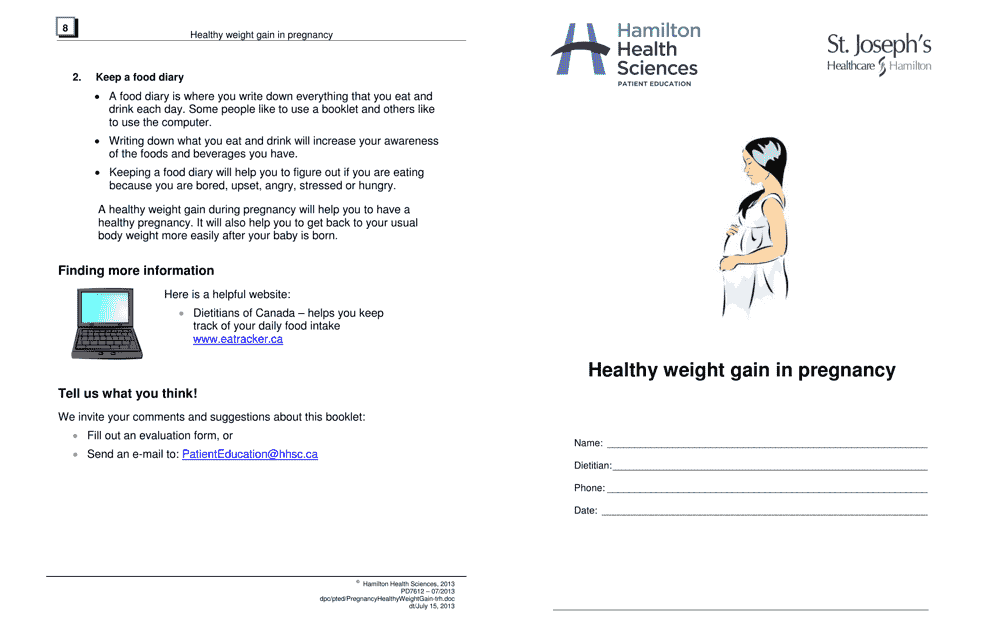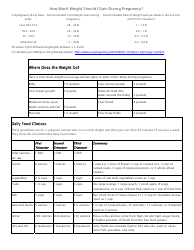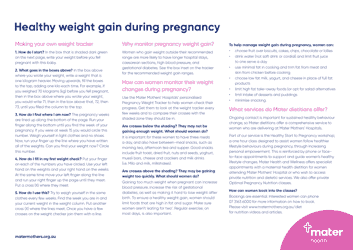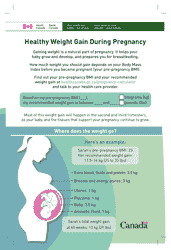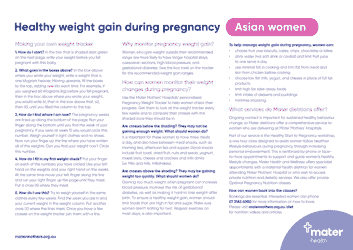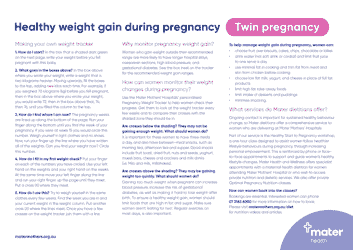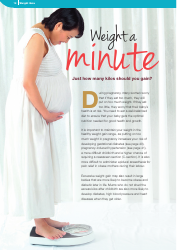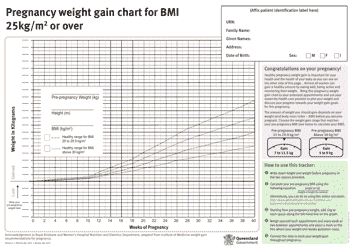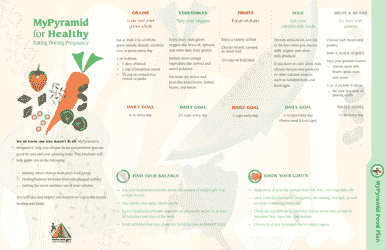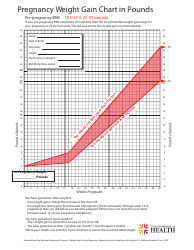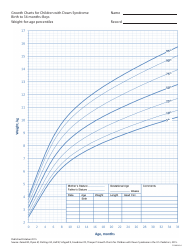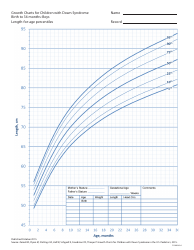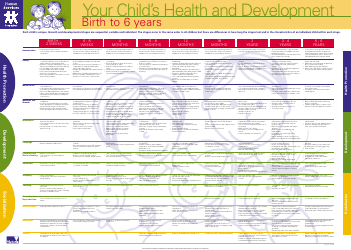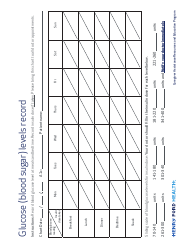Pregnancy Weight Gain and Food Diary - Hamilton Health Sciences
The Pregnancy Weight Gain and Food Diary by Hamilton Health Sciences is a resource that helps pregnant women track their weight gain and food intake during pregnancy. It is designed to promote healthy eating habits and provide guidance on how to manage weight gain during pregnancy.
FAQ
Q: How much weight should I gain during pregnancy?
A: The amount of weight you should gain during pregnancy depends on your pre-pregnancy BMI. On average, women with a normal BMI should aim to gain 25-35 pounds, while underweight women should aim for 28-40 pounds and overweight women for 15-25 pounds.
Q: What are some healthy foods to eat during pregnancy?
A: During pregnancy, it is important to consume a balanced diet that includes plenty of fruits, vegetables, whole grains, lean proteins, and dairy products. It's also important to drink plenty of water and limit your intake of caffeine and processed foods.
Q: Can I continue to exercise during pregnancy?
A: Yes, exercise is generally safe and beneficial during pregnancy. However, it is important to consult with your healthcare provider before starting or continuing any exercise regimen, especially if you have any medical conditions or complications.
Q: Should I be tracking what I eat during pregnancy?
A: Keeping a food diary can be a helpful way to ensure you are getting the right nutrients and managing your weight gain during pregnancy. It can also help you identify any patterns or triggers for discomfort or cravings. Talk to your healthcare provider for personalized advice.
Q: What are some common pregnancy cravings?
A: Pregnancy cravings can vary greatly from person to person, but some common cravings include sweet foods, salty snacks, and certain types of fruits or vegetables. It's important to indulge in moderation and focus on a balanced diet overall.
Q: Are there any foods I should avoid during pregnancy?
A: Yes, there are certain foods that should be avoided during pregnancy due to the risk of foodborne illnesses or potential harm to the baby. These include raw or undercooked meats, certain types of fish high in mercury, unpasteurized dairy products, and certain soft cheeses.
Q: How can I manage morning sickness and nausea during pregnancy?
A: To manage morning sickness and nausea during pregnancy, it can be helpful to eat small, frequent meals throughout the day, avoid spicy or greasy foods, drink plenty of fluids, and try ginger or peppermint remedies. If symptoms are severe or persistent, consult your healthcare provider.
Q: Is it normal to have food aversions during pregnancy?
A: Yes, it is normal to have food aversions during pregnancy. Hormonal changes can affect your sense of taste and smell, leading to aversions or cravings for certain foods. It is important to listen to your body and eat what feels comfortable and appealing to you.
Q: What should I do if I have concerns about my weight gain or eating habits during pregnancy?
A: If you have concerns about your weight gain or eating habits during pregnancy, it is important to discuss them with your healthcare provider. They can provide guidance, support, and any necessary referrals to a registered dietitian or other specialists.
Q: Are there any supplements I should take during pregnancy?
A: Yes, prenatal vitamins are recommended for all pregnant women to ensure they are getting the necessary nutrients, especially folic acid. Your healthcare provider may also recommend additional supplements based on your individual needs.
